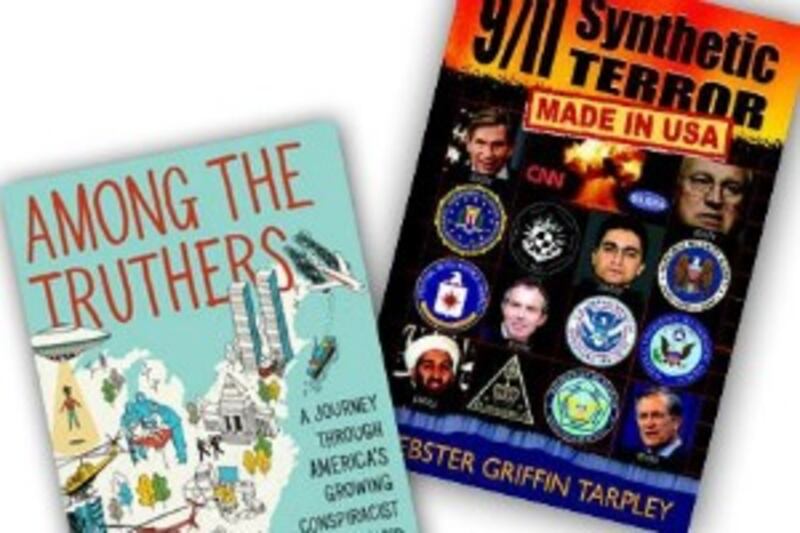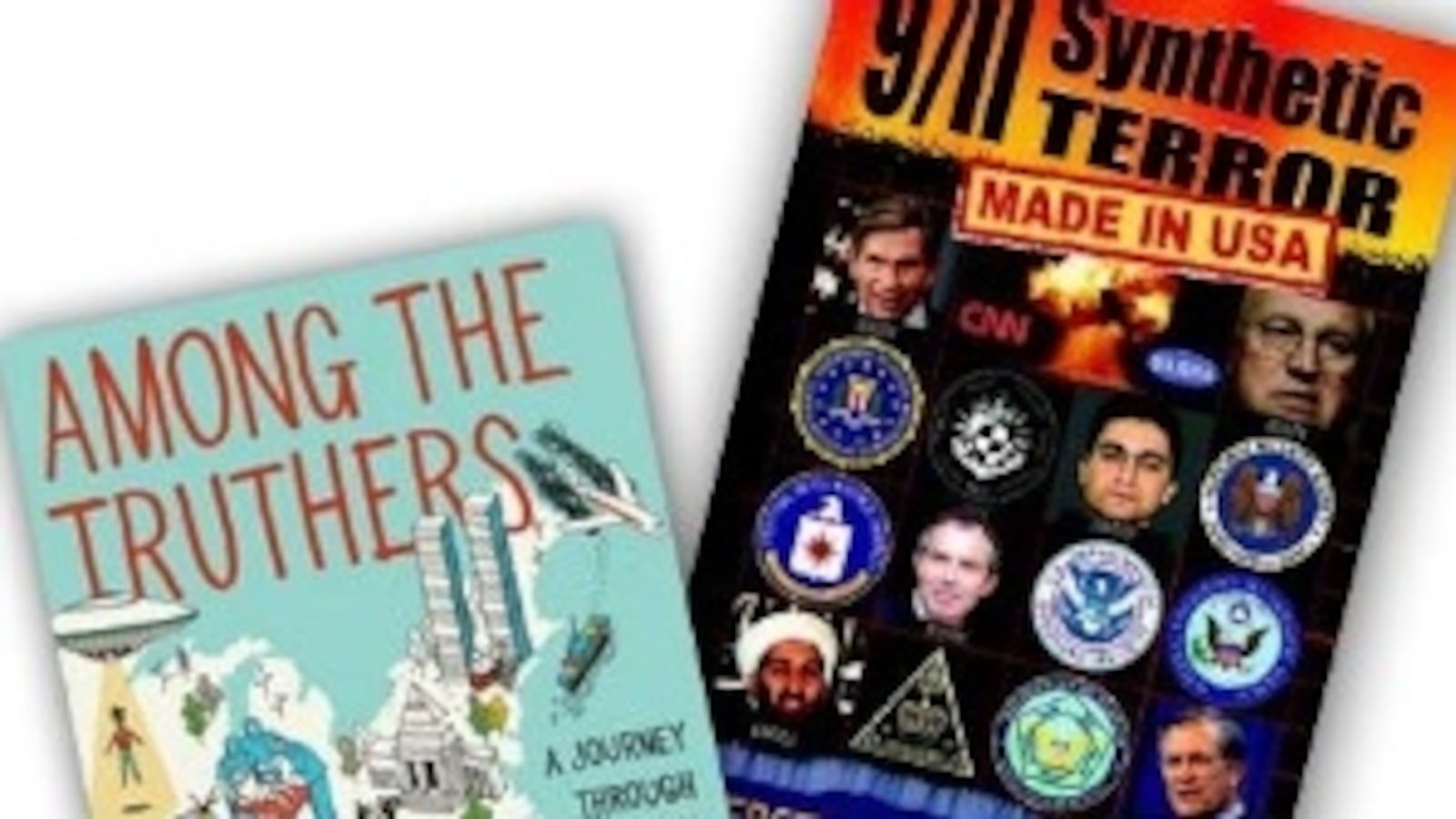
That was one weird evening!
My friend and National Post editor Jonathan Kay came to Washington yesterday to promote his (excellent) study of conspiracy theorists, Among the Truthers, at an evening event at the Washington Spy Museum.
Jon had the bold—maybe too bold—idea of sharing a podium with a man named Webster Tarpley, a former Lyndon LaRouchite turned 9/11 Truther. Jon also mobilized me to moderate. I agreed without quite realizing what I was letting myself in for.
In a tweet sent after the first view of the audience, I described the hall as 100% crazy. After taking questions from the crowd, I'd round that estimate down, to a more manageable 80%. Webster Tarpley may not have a large fan base, but it seems like every last single one of them turned out to listen to a presentation as involuted as it was long-winded: Power Point is truly Bill Gates's gift to the Crank-American community.
As I said: a weird evening. But Jon performed impressively in this fun-house environment, and made a number of points I thought very interesting, including these two:
1) Asked whether he ever knew conspiracy theorists to change their mind, Jon said that he found Birthers more likely to recant than Truthers. The reason, he suggested, was that Birtherism penetrated deeper into the mainstream than Trutherism ever did. Many more or less level-headed Republicans flirted with Birtherism as a way to express their revulsion from the Obama presidency. But this same penetration of the mainstream also made Birtherism vulnerable—precisely because so many people who dabbled in Birtherism belonged to mainstream society, they could be recalled to the mainstream by evidence. While there remains a fringe that continues to elaborate wild theories about the long-form birth certificate, publication of the long-form certificate did (Jon says) actually make an impression on soft-core Birthers.
2) Jon said that he has learned over time to stop asking conspiracy theorists "why" they believed what they believed, and instead to ask "when" they started believing it. That question led him to an interesting divergence: the Birthers he talked to said they doubted Obama's American-ness from the very first day they become aware of him. The Truthers, by contrast, traced their conversion experience typically noto to 9/11 itself, but to the spring and summer of 2003: the build-up to and the launch of the war in Iraq. "If my government could lie about WMD," they reasoned, "it could lie about anything."
And here's something else. Webster Tarpley was obviously not anything like as as cogent Jon Kay. Yet among his mish-mash of randomized factoids, there did occur a moment of lucidity.
After explaining how Pearl Harbor was a government conspiracy and how the Toulouse killer Mohamed Merah was framed, Tarpley did for a moment muse about why Americans had become more susceptible to conspiracy theories. It was a poignant moment, really: the mad mind seemingly—briefly—aware of itself as mad, analyzing itself, trying to understand how it came to be trapped inside its crazy skull. He said, "Democratic governments rely on eudaemonic legitimation." Meaning that people trust their government when they feel themselves to be doing well. And as more and more people cease to feel they are doing well, they become readier to believe wild allegations of all kinds.
That seems a true point—and, from the horse's mouth as it were, one more warning of the ill consequences of an economy that has left so many feeling marginalized and alienated.






